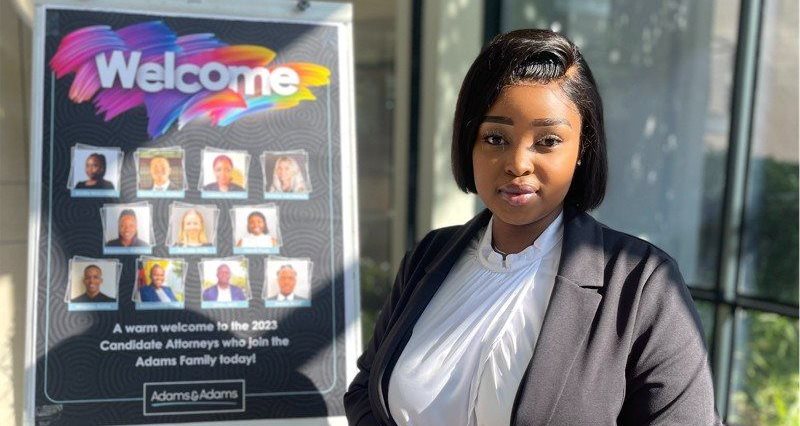
As part Bizcommunity's Youth Month features, Makhura questions our reasons to celebrate as she highlights the challenges facing the youth of today...
I am Isabella Makhura, a 23-year-old black female living with a disability. I decided to get into law to be a voice for my people. People with disabilities are marginalised and excluded from full participation in society, globally.
In South Africa, people with disabilities face multiple forms of discrimination in various social spheres, including in respect of access to healthcare services, employment, and education. The current and long-standing view in the world is we are not capable or good enough to contribute to the world on the same scale as the average human being.
I decided to study law because I reject the status quo and because I believe the only disability in society is the inability to see a disabled person as more and furthermore, that I do not need to be handed everything on a silver platter out of sympathy – I am able to fully do tasks that the average human being can do, on the same level and, in certain instances, better.
The aim is to inspire other people living with disabilities to know how to better stand up for themselves and contribute to society positively.
We are 24 years into democracy and the youth is still faced with social injustices. I am of the view that Youth Day needs to be used in a much better way to send out a message than it currently is being used. The youth is faced with so many social cancers and we cannot begin to celebrate such a day when we are faced with so many injustices.
Any adult from age 24-34 in the country will tell you, “Ziyakhala” – this is common Zulu slang word, used on social media, which can loosely be translated as “things are bad”. Unemployment, inequality, mental health issues and alcohol abuse are some of the cancers we are faced with and until we treat this cancer – there is really nothing to celebrate. In essence, a lot is going on that we need to address and find better solutions to before we can celebrate “Youth Day”.
Twenty-four years later, Youth Day can no longer only be about the Soweto Uprising. Yes, we need to celebrate conquering that battle but there are new issues we are faced with. It is no longer about apartheid or Afrikaans being utilised as the medium of instruction in black schools – many of those challenges were overcome in the new South Africa but what about the new challenges mentioned in my previous statement faced by the 2023 youth?
The right to freedom of expression.
This in my view should be the most important right, in connection with the injustices we are faced today. However, the world has been made up in such a way that it is a taboo to hold a view on certain things. Silence in the midst of injustice is betrayal – to yourself, to those who look up to you and to those faced by the injustice itself.
The youth of South Africa is not angry enough. We are subjected to so many issues at the hands of the current leadership in the country, companies, individuals – all the way down to the man at the bottom.
From unemployment to mental health not being prioritised, to being subjected to four hours in the dark, all in the name of “a struggling economy”. It is us who carry the real burden of the “New Dawn” and not the aristocrats at the top.
Freedom.
In as much as many youths are not using this tool, which we were afforded by freedom fighters, we are able to at least be who we want to be and fight for our basic human rights in any way we legally can. An example can be trending videos on social media, where the youth records and speaks out about injustices brought against them, with the aim of spreading awareness of what is wrong. The playground has somewhat been levelled by freedom.
For now, I will only speak on unemployment and lack of opportunities to better the lives of the youth.
We live in a country where we have 1,000 graduates and only 50 jobs (for example). There is not enough being done to equip the youth with better means of generating an income, with or without the use of a degree. The current makeup of the cabinet is a key element we can look at when we speak about the youth not being empowered enough. There is little to no representation of young people in key areas that need to make this country a better place.
A youthful country would be a better place for all, and it is good to see many companies taking that step in the right direction.
We need more skills development programmes and opportunities only directed at the youth. It is crucial to understand what interventions are working and what interventions we need to work on in order to emancipate the youth.
Life will throw sticks and stones at you but they will help you be a better person in future.